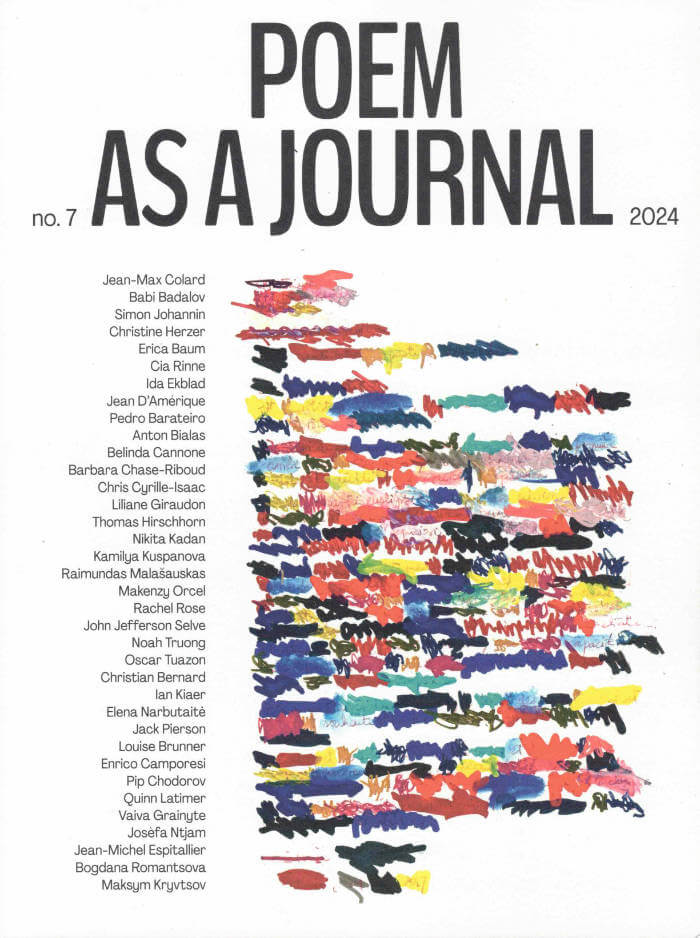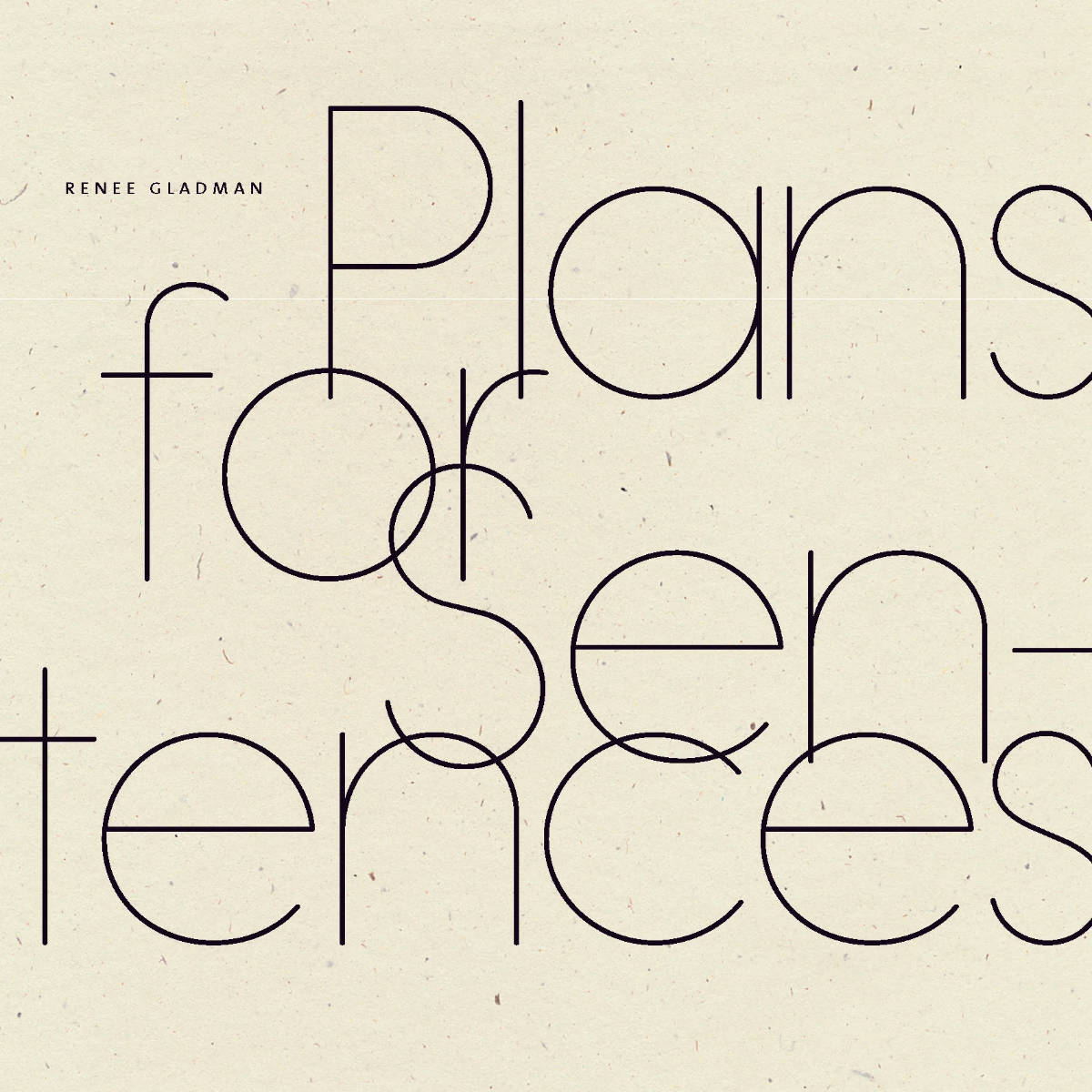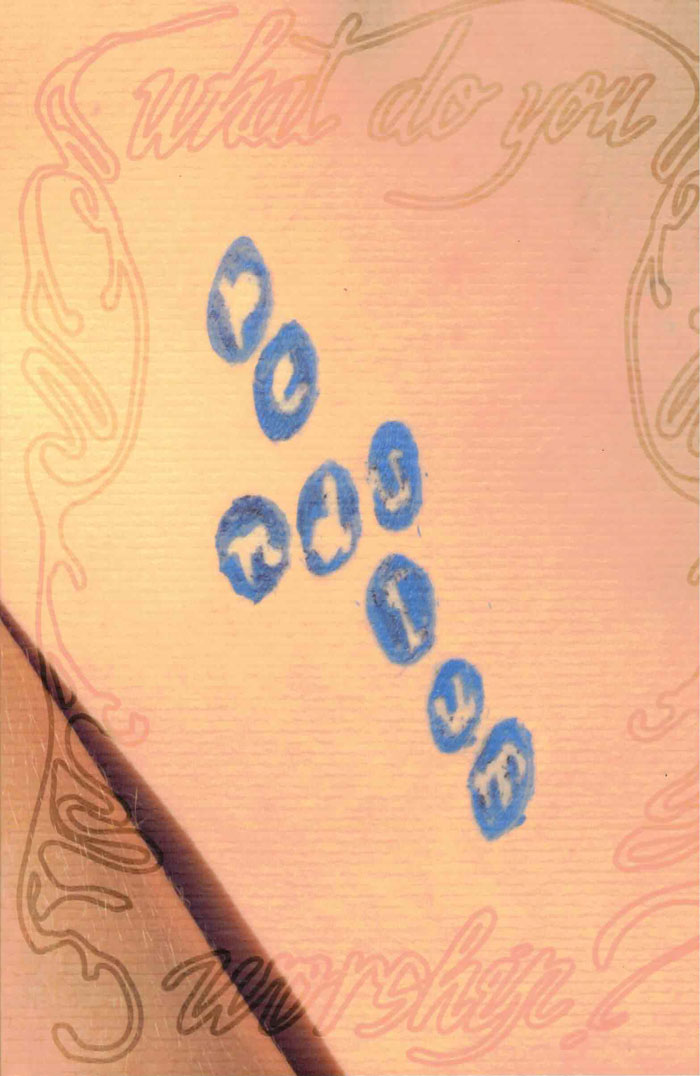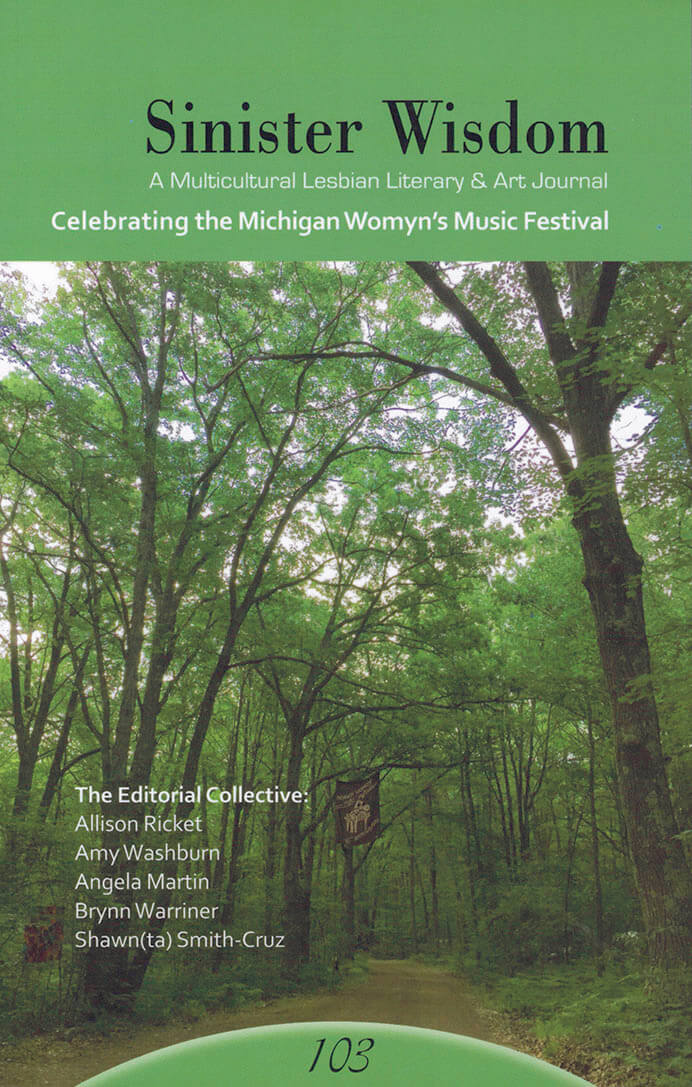
Issue 7: Poem as a Journal
Jean-Max Colard ed.
What sparked off this issue of as a Journal was the clear evidence of poetry’s growing presence in the field of contemporary art. Rather than ‘Poetry’ in general, and even less so the figure of the ‘Poet’, it’s the poem that has our full attention: I find it in the title of an exhibition by Jason Dodge, on the invitation card sent out by artist Ida Ekblad, and then again in the form of an exhibition, in the display and arrangement of works within a space by Ian Kiaer, Elena Narbutaitė or Wolfgang Tillmans. Hence this open-ended question, ‘What is poetry for you today?’, placed like a probe among various art world players, in a sort of vox populi.
And so rises the confirmation of an intuition: in an art field driven by the market, where artworks are becoming luxury accessories for the jet set, poetry, with its poverty and economy of means, appears at the opposite end of the spectrum, as a pole of resistance.




